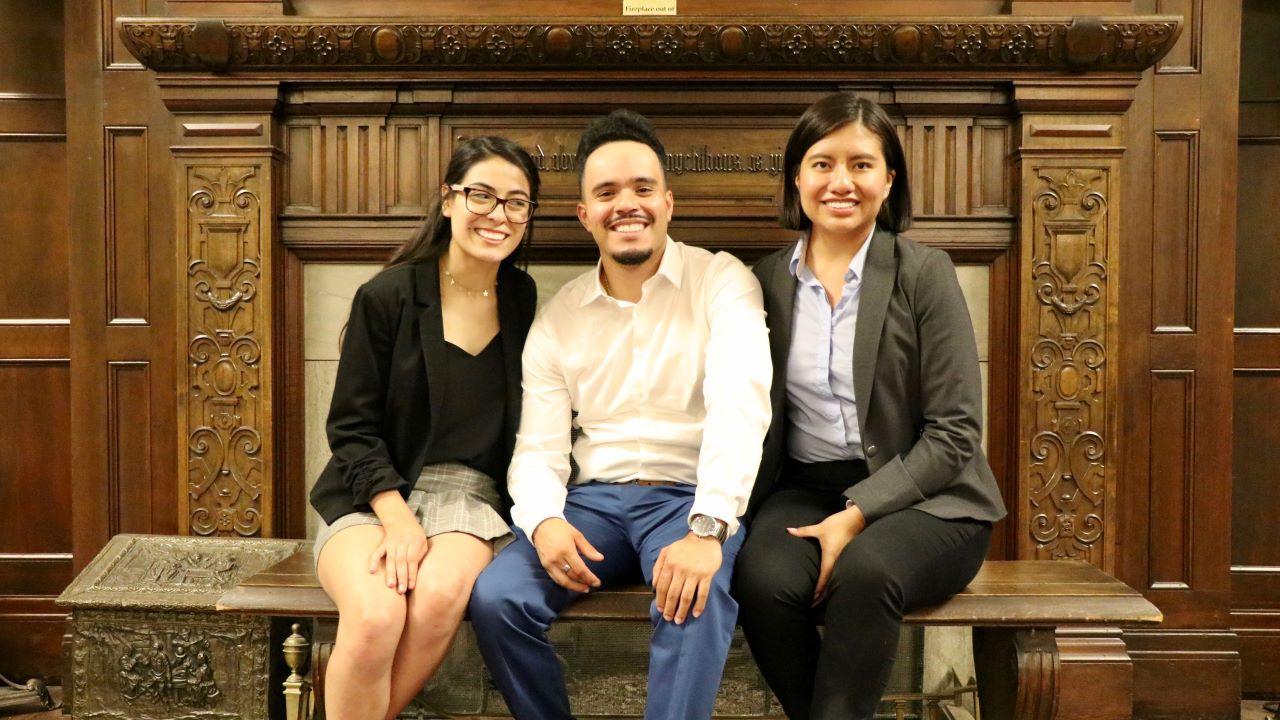
UC Davis Students Find Local Solutions for Global Challenges at APRU Leadership Program
Using global perspectives to address educational inequality
This July, three UC Davis students expanded their global leadership skills while staying in country by attending the Association of Pacific Rim Universities (APRU) Undergraduate Leaders’ Program at the University of Oregon.
A collaborative and international educational program, the 2019 theme “Fresh Approaches to a Gordian Knot: Student Leaders Untangle Pacific Rim Environment, Health and Inequality Challenges” tasked 52 select undergraduate students from 28 Pacific Rim research universities to address social inequality, environmental degradation and public health using a “micro” model approach.
“We came together to solve seemingly impossible problems through a smaller scope by thinking about them locally,” says Maria Arteaga ’19, one of the UC Davis students selected to attend the annual program. “We were able to really break down those big topics by focusing on the community in Oregon and working with nonprofits that aligned themselves with solving those issues in Eugene.”
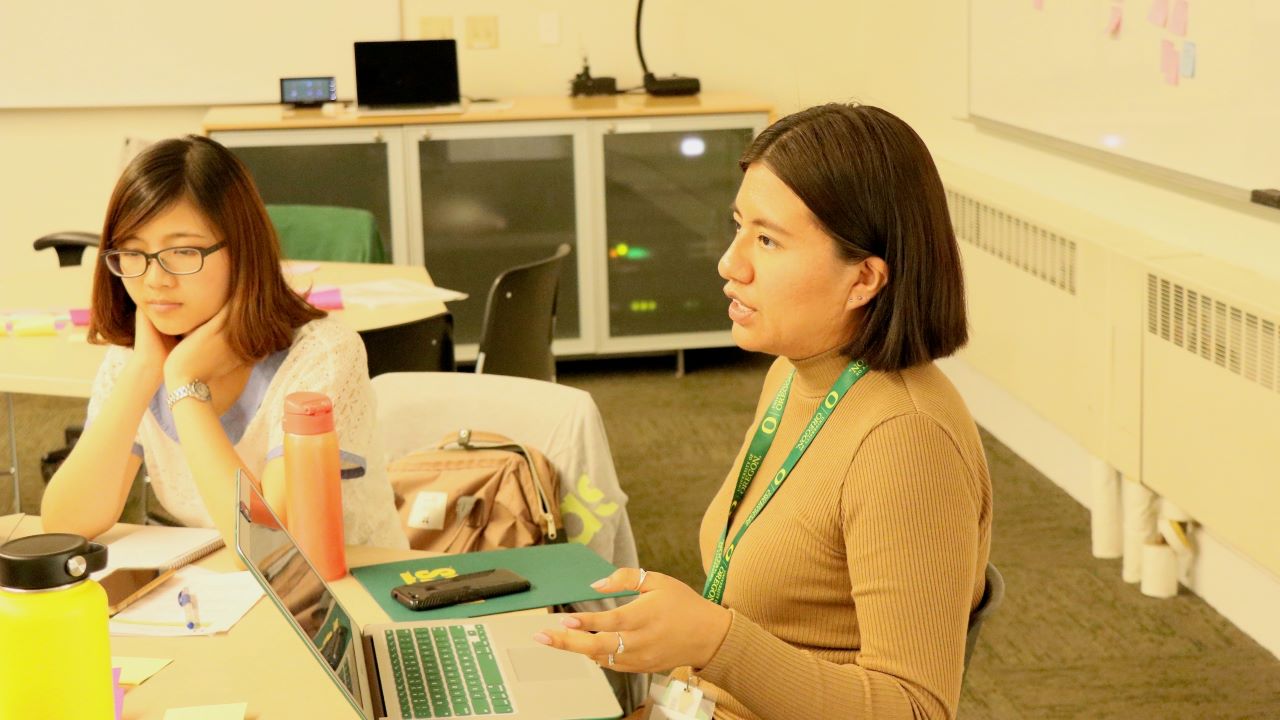
“It was probably one of the best experiences I’ve ever had,” says Arteaga, who recently graduated with a degree in managerial economics from UC Davis’ College of Agricultural and Environmental Sciences.
Making “Human-Centered” Connections
In addition to helping Arteaga practice solving global systemic problems at the local level, the APRU Undergraduate Leaders’ Program also provided her with the chance to meet students from around the globe—and put a face to world news headlines.

“Now when I see a news article about a different part of the world, I don’t just think about the country, I think about the person,” she says. “I think about the amazing students I met who go to universities in those countries, and how they’re going to be affected. The news has become more significant and more urgent because I feel the world, in a good way, has been made smaller through this program.”
Programming consisted of faculty-led trainings on skills-building and problem-solving, followed by breakout sessions so that smaller groups could focus on a specific local challenge related to one of the three global focus areas.
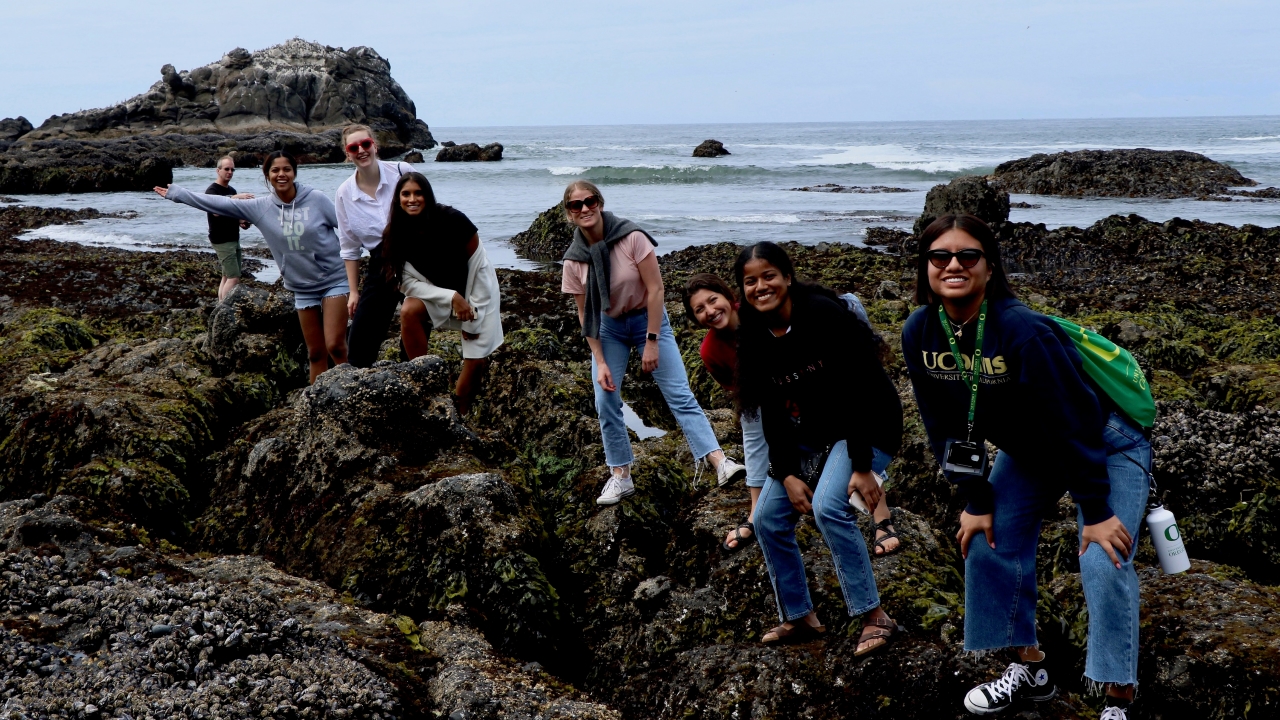
Arteaga and her team of students hailing from China, South Korea, Taiwan and the U.S. were tasked with unpacking educational inequality between African American and black students and their peers in Eugene.
“We looked into how these students were particularly affected by low graduation rates and high incidents of disciplinary actions,” she says, “and how a lot of those problems are really rooted in not being well represented in the classroom. There was a lot that needed to be explained.”
The assignment afforded Arteaga the opportunity to apprise her international team members on the history of segregation, slavery and institutionalized racism in the U.S., and how these historical practices are still experienced in the classroom today. In return, the students from China, South Korea and Taiwan explained the challenges their own educational systems are facing—and solutions that could benefit students in Eugene.
Ultimately, the team devised a workshop for elementary school teachers to address the history of minority students being forgotten in the classroom and discriminated against. Workshop topics included the history of African American and black communities in Oregon, understanding microaggressions and how to prevent them as well as the importance of African American and black community leaders being part of the classroom.
“We see headlines, we live in America, we know these things, but to explain it to students who don’t really know what racism is in the sense that Americans define it, that was really impactful,” says Arteaga.
“It was a constant whirlwind of emotions and learning things about your own country through the eyes of students from other parts of the world, which made us reflect on what our country has gone through and what we are going through today.”
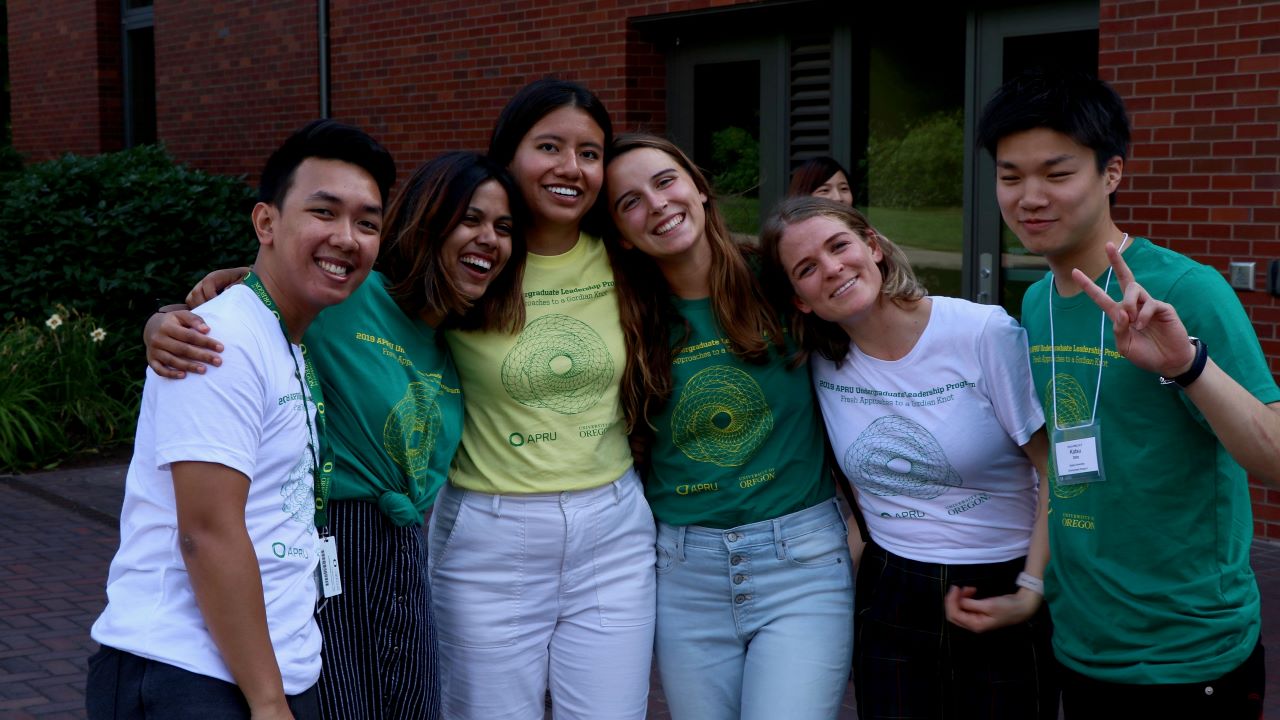
Global Immigrant Perspectives
Similarly, Christal Juarez, a UC Davis student selected to participate in the APRU Undergraduate Leaders’ Program, found that collaborating with Pacific Rim students exposed her to how education systems work in other countries.
She and her international teammates were given a chance to address another educational inequality—partnering with Lane Education Service District, a nonprofit that supports 16 school districts in Lane County, Oregon.
“My group in particular decided to look at family involvement and the ways that getting families and schools connected would help lessen the inequality in the education system,” Juarez says.
“What got us going toward family involvement actually came from so many of us having stories of our own families being immigrants to a different country. So we all had this perspective of families struggling a little bit to connect with school systems.”
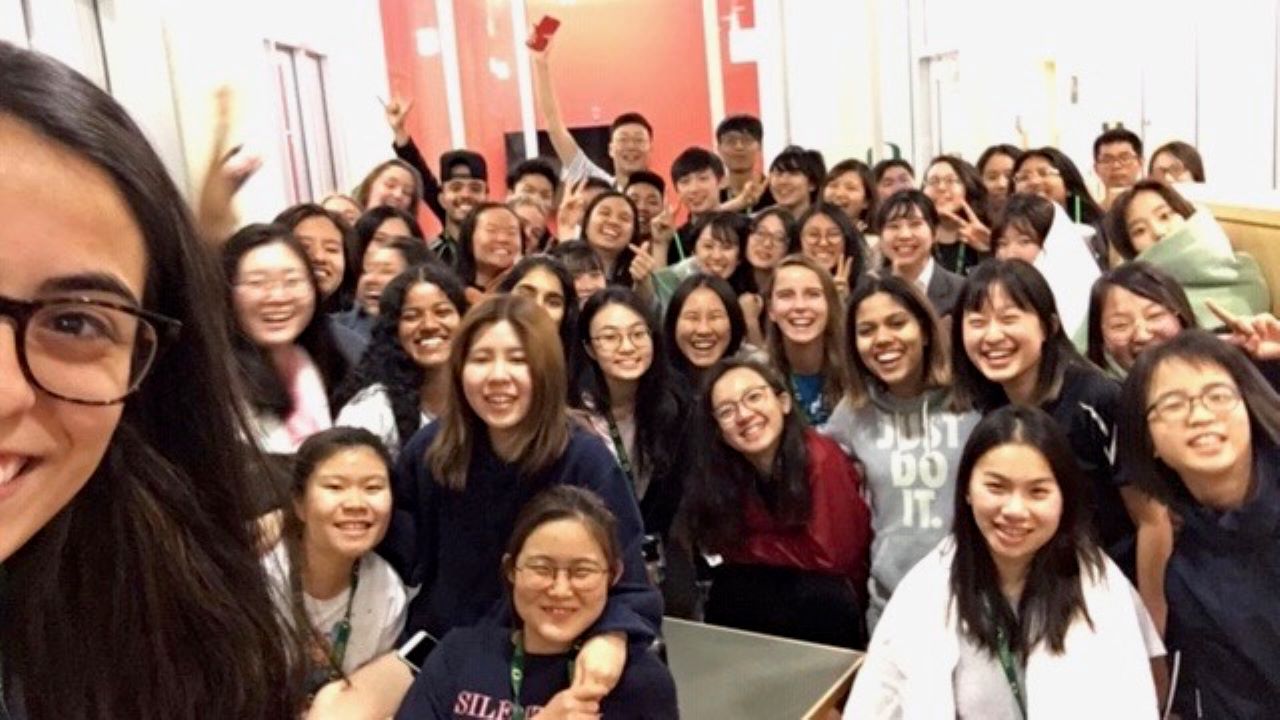
Juarez’s team included students whose families had immigrated to Australia, Singapore and Spain, with her own family having immigrated to the U.S. from Mexico.
“We all kind of had that starting point in our families, in our cultural identity, of having a mixture of the country we currently live in and where our families came from,” she says. “From there we talked about our school experiences and how schools reached out to our families to really try and lessen that gap. So that was the approach we took to tackle improving school inequality in Eugene.”
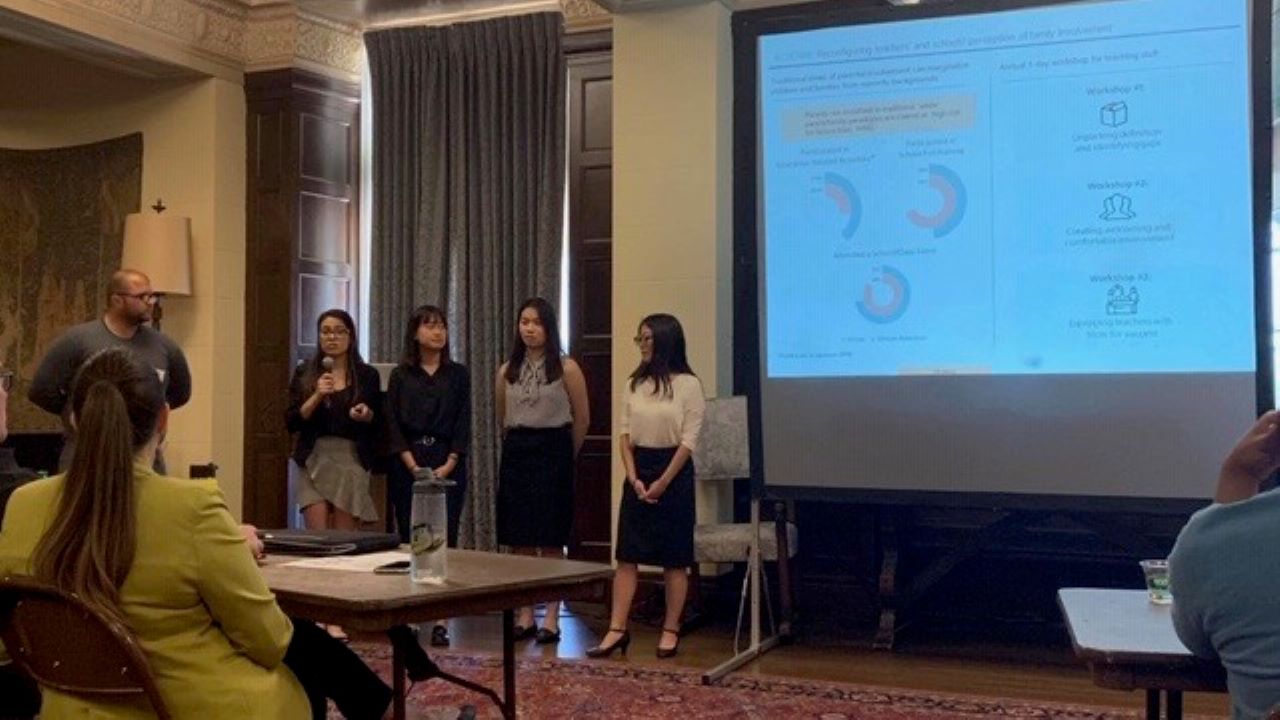
New Opportunities
Juarez attributes her double major in anthropology and international relations and minor in human rights studies as preparing her for this type of global approach to local problem-solving.
“Personally, anthropology really helps me look at things and question things from a different perspective,” she says. “Rather than be OK with settling on the perspective that I’m shown, anthropology really tries to get at how other people might look at it."
"Thinking through those lenses has helped me work through how to approach different cultural identities and communicate with people who aren’t like me.”
“This experience gave me the courage to give new international opportunities a shot,” says Juarez, “and see where they take me in the future.”
About Global Affairs at UC Davis
Global Affairs brings the world to UC Davis, welcoming more than 10,000 international students, scholars and leaders, and hosting programs that inspire global curiosity, understanding and engagement. Compelled by the valuable outcomes of thinking globally, we make transformative opportunities a reality by supporting the thousands of students and faculty studying and researching internationally—and by facilitating collaborations that tackle the world’s most pressing problems through more than 150 international partnerships.
Putting our vision of a UC Davis community that engages, thrives, and leads in this interconnected world into action, Global Affairs is now in pursuit of an ambitious goal: Global Education for All.